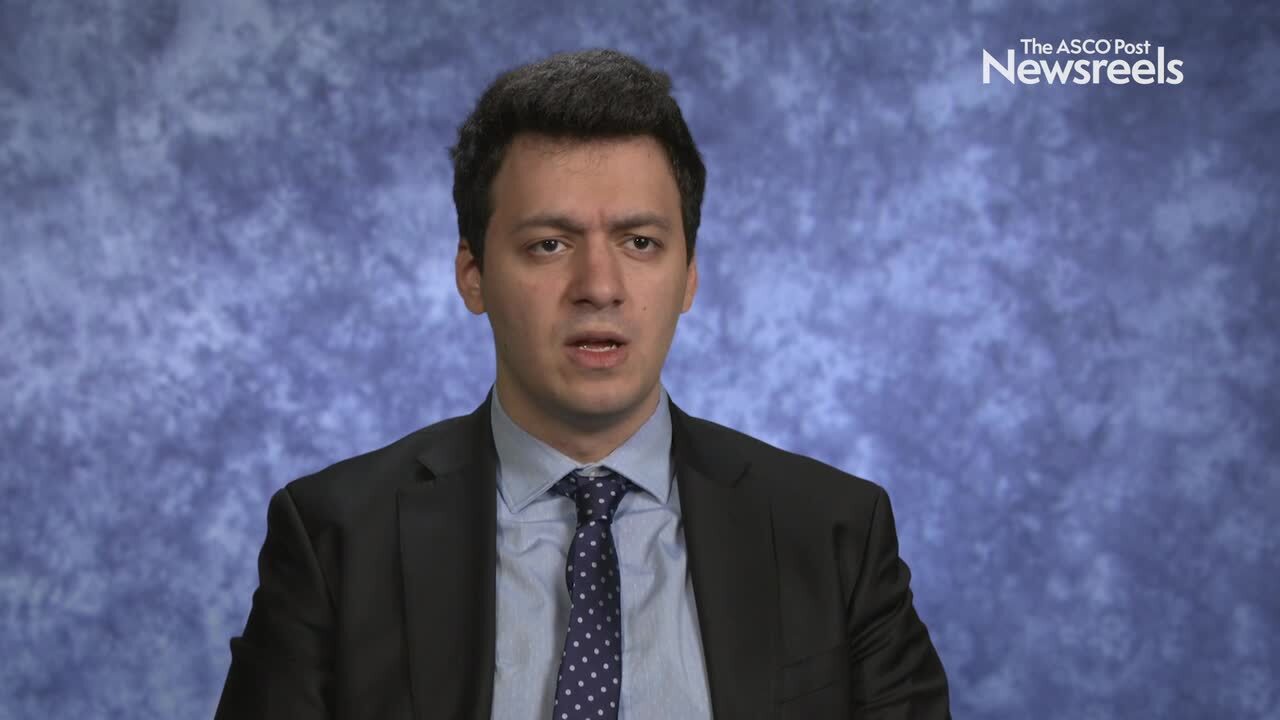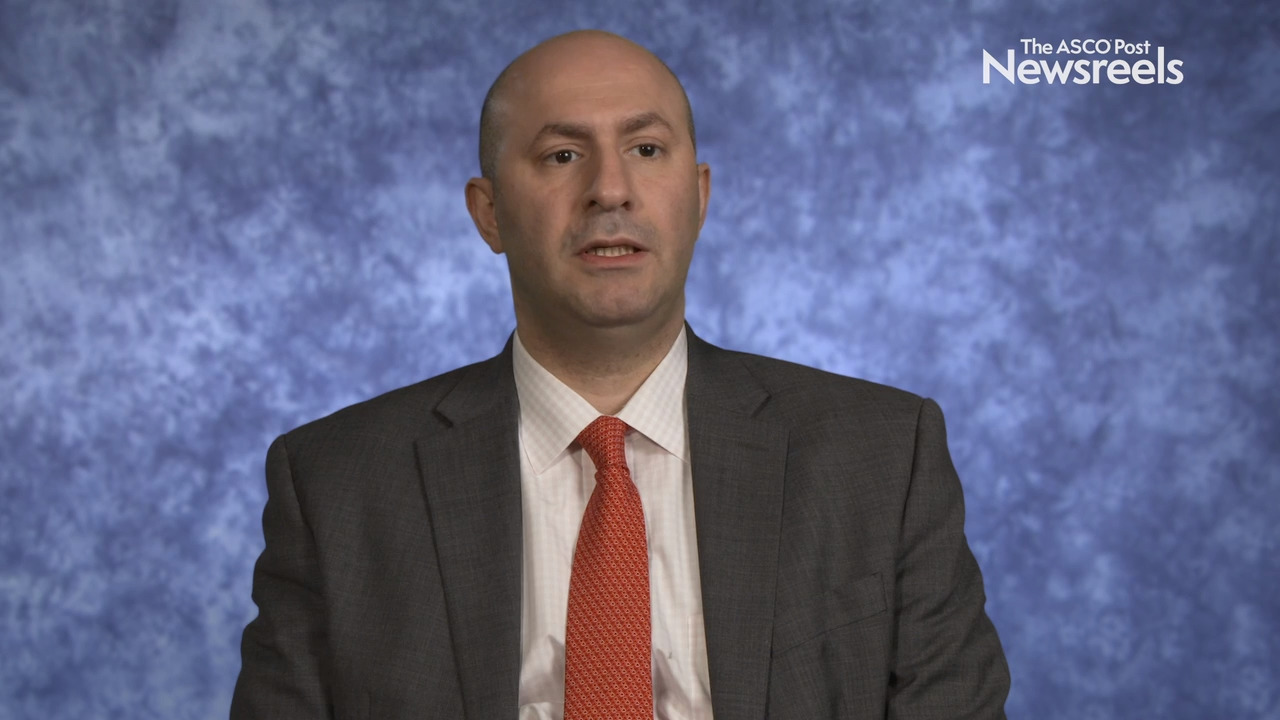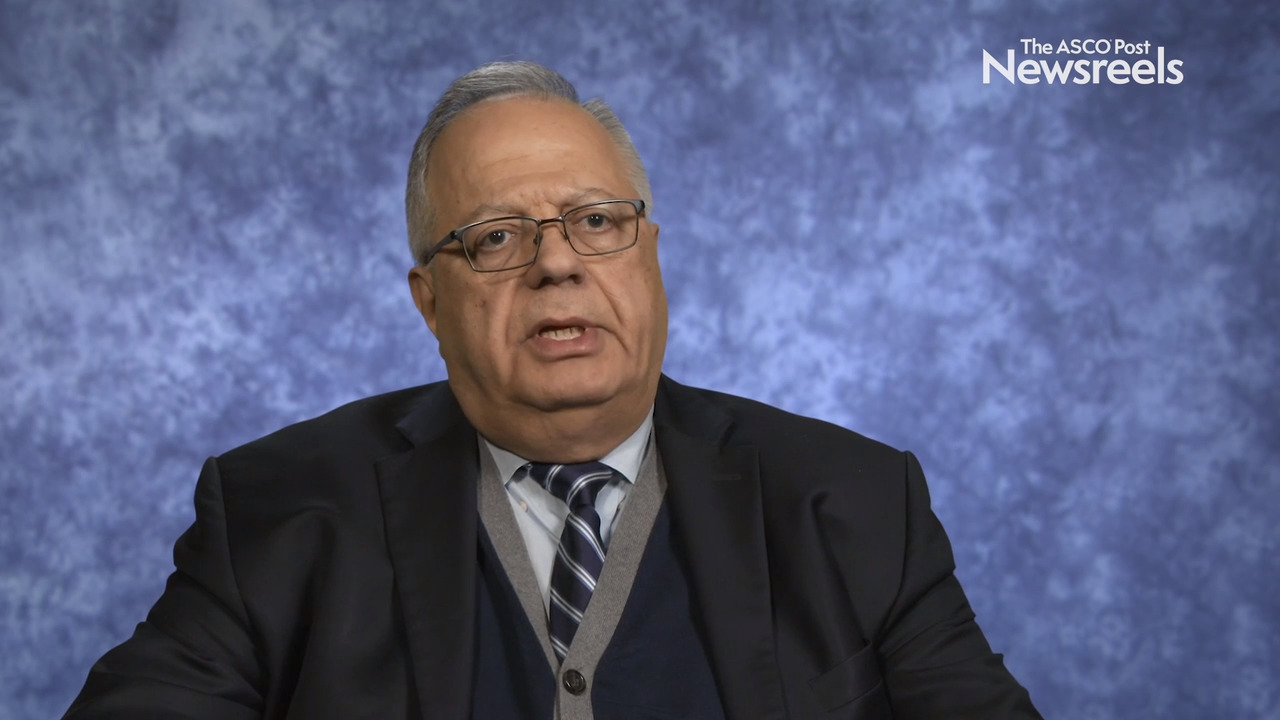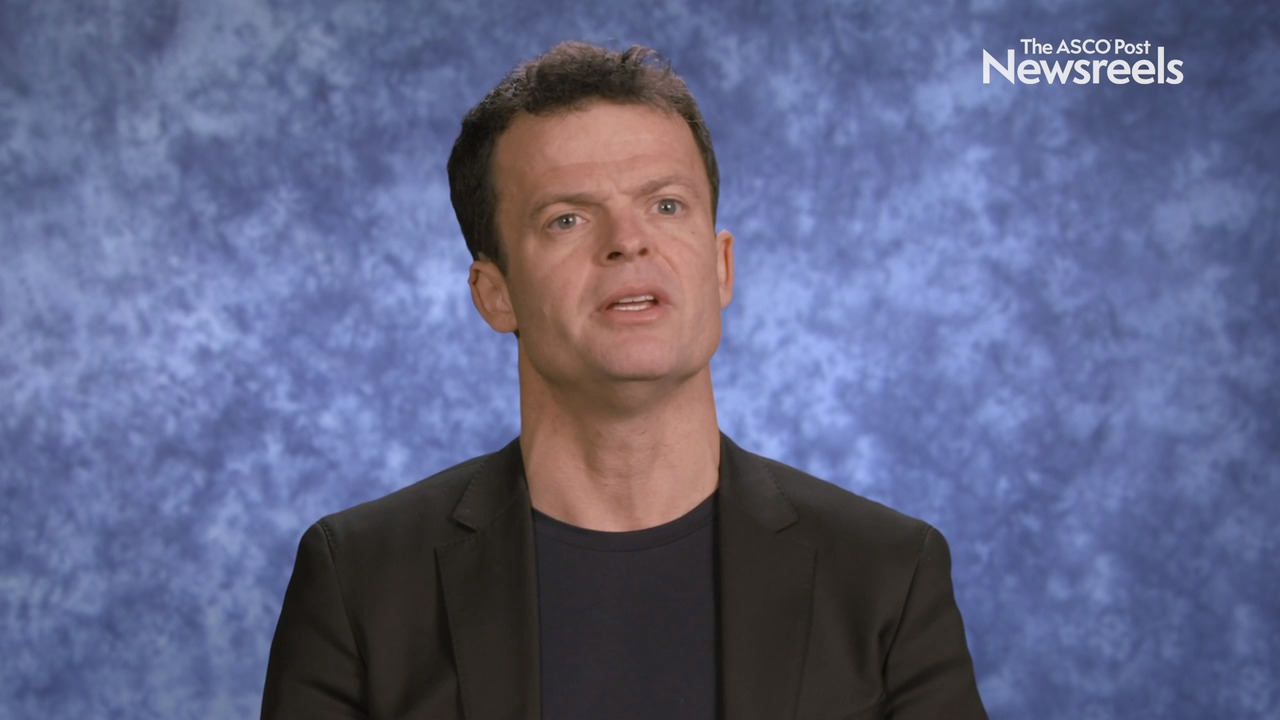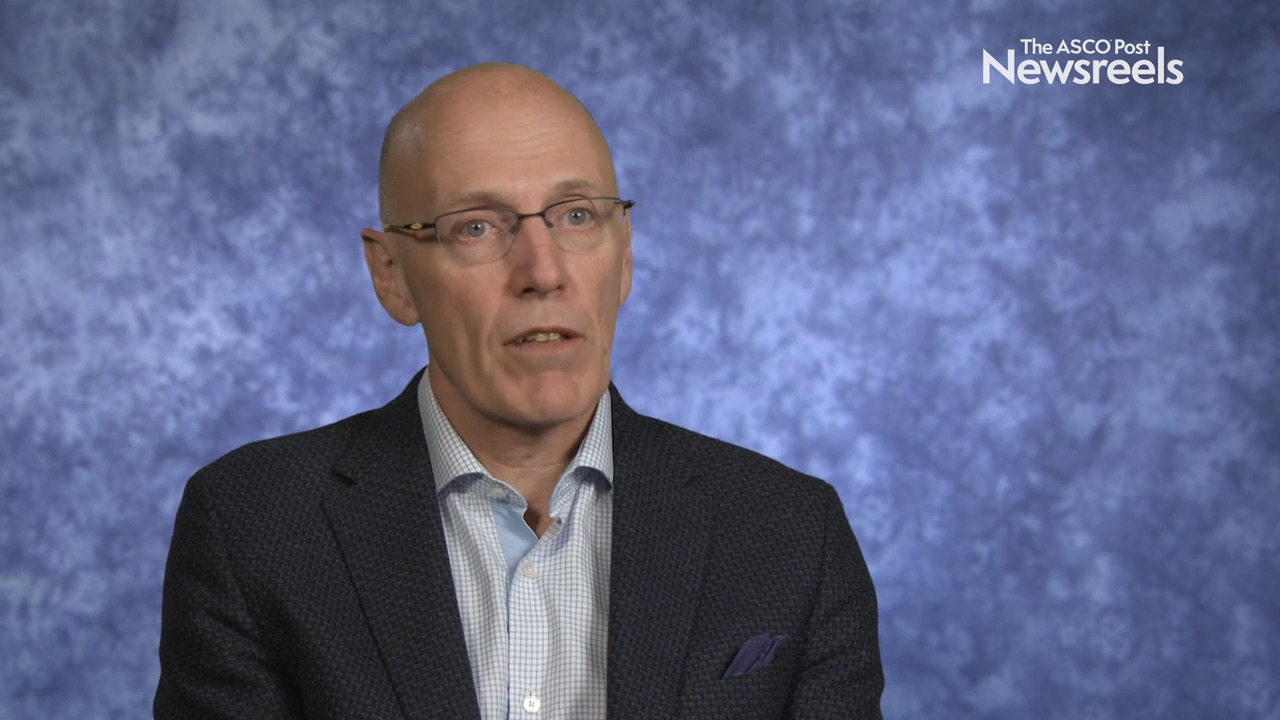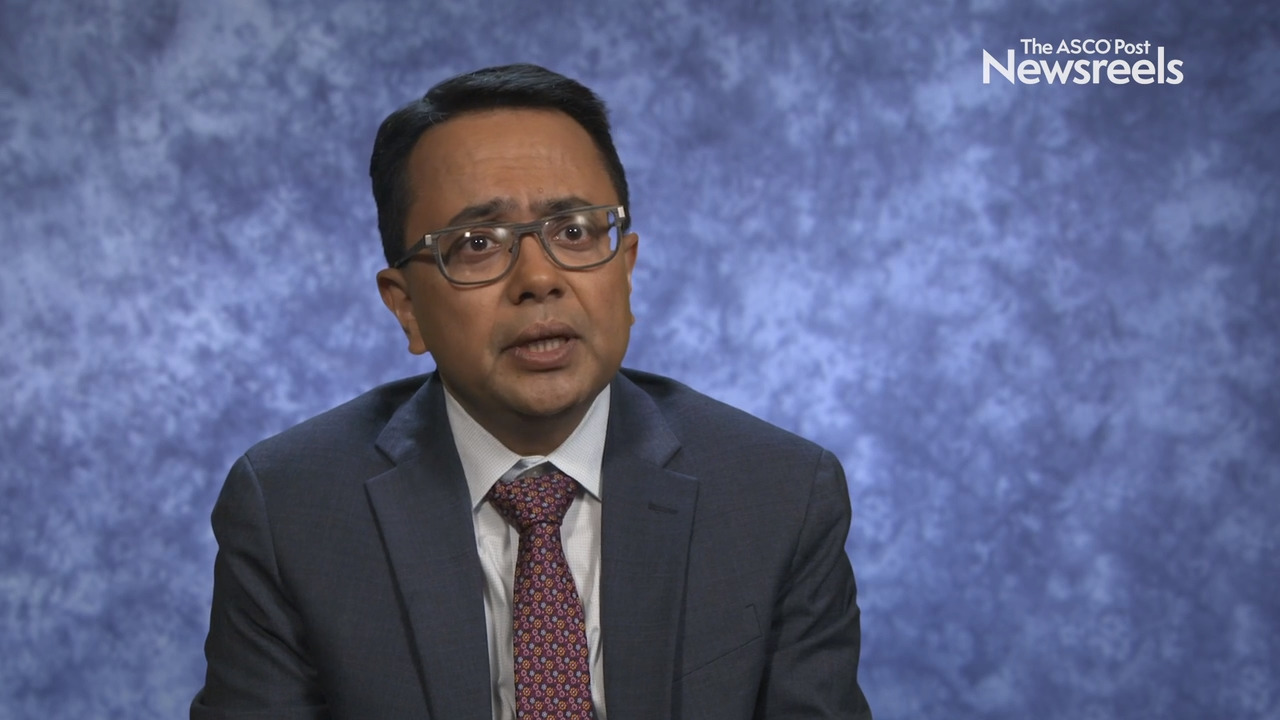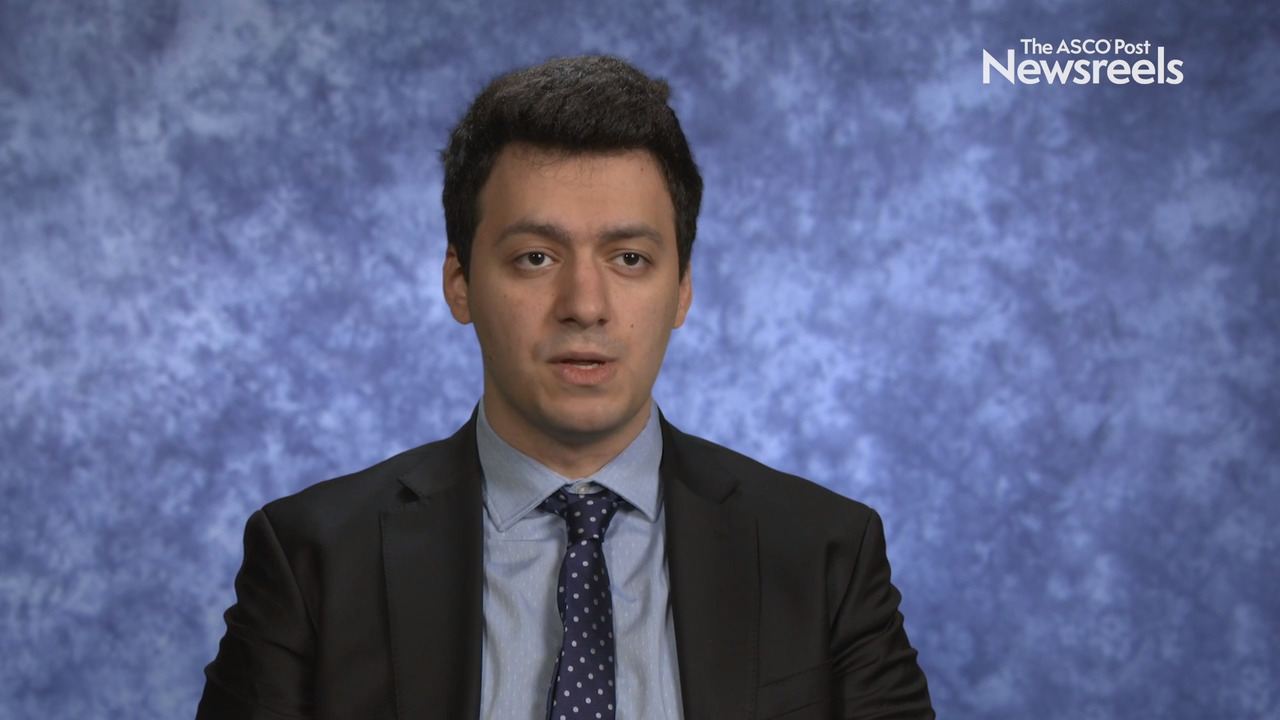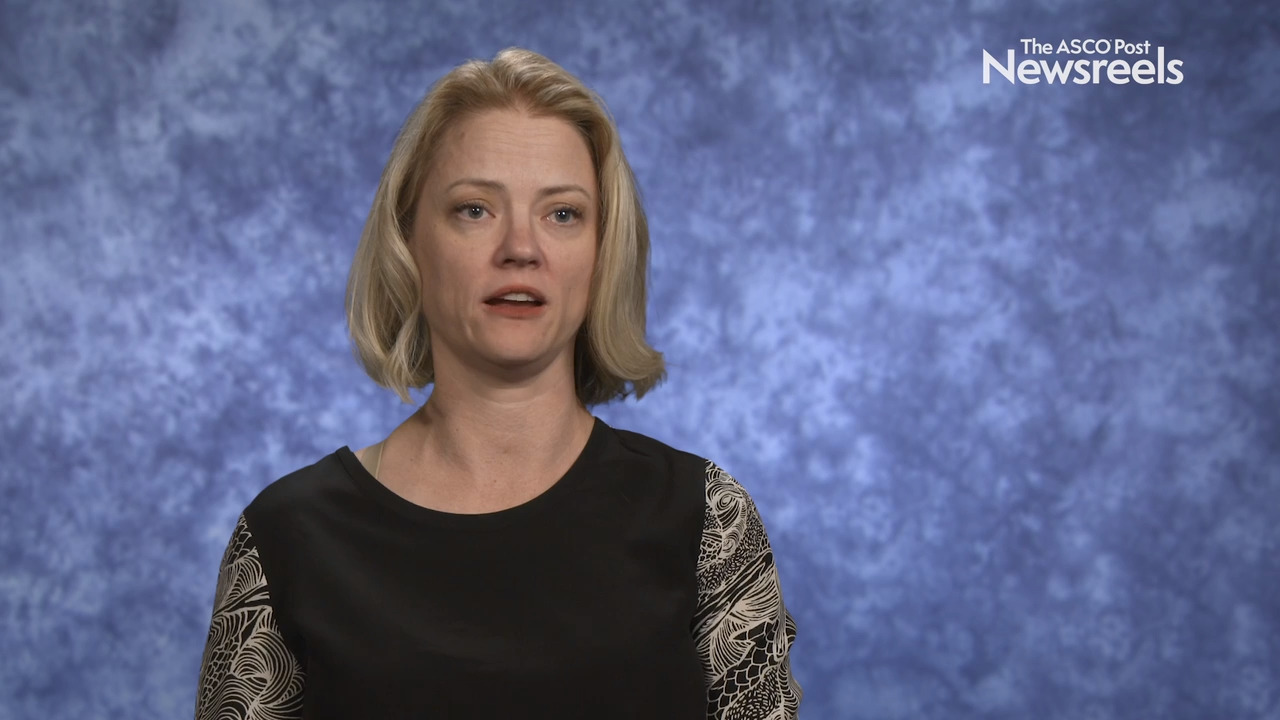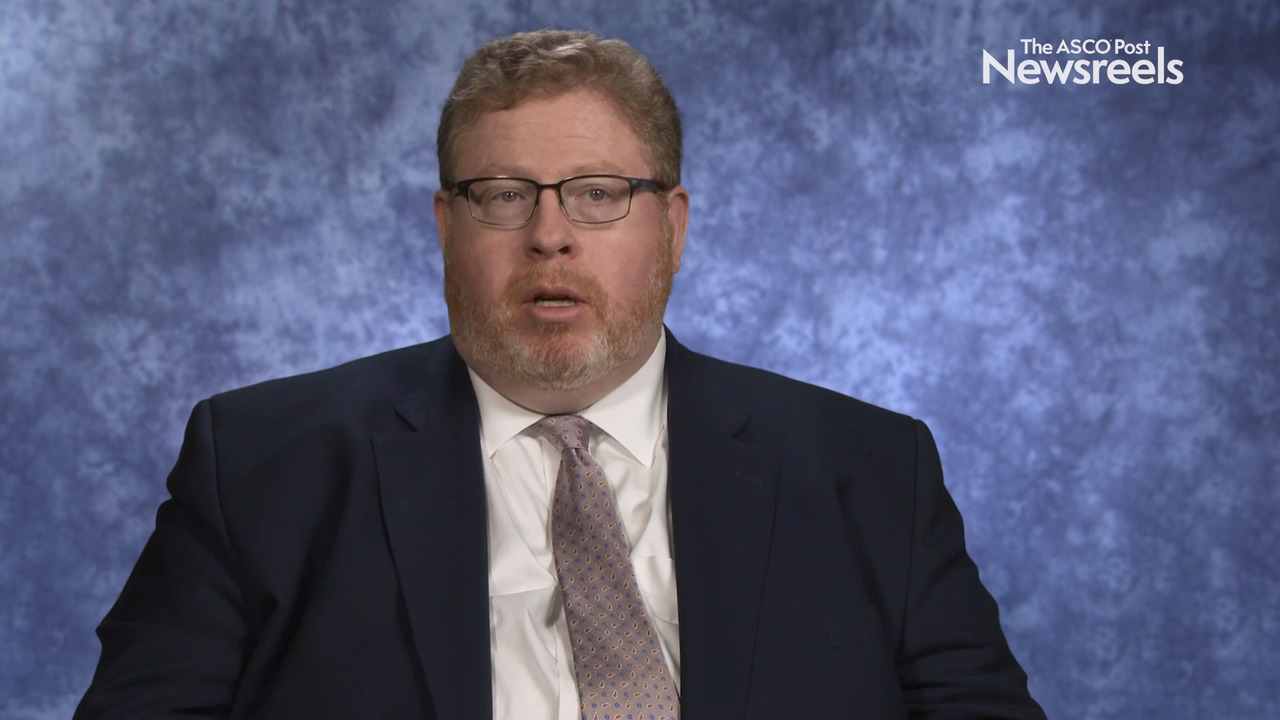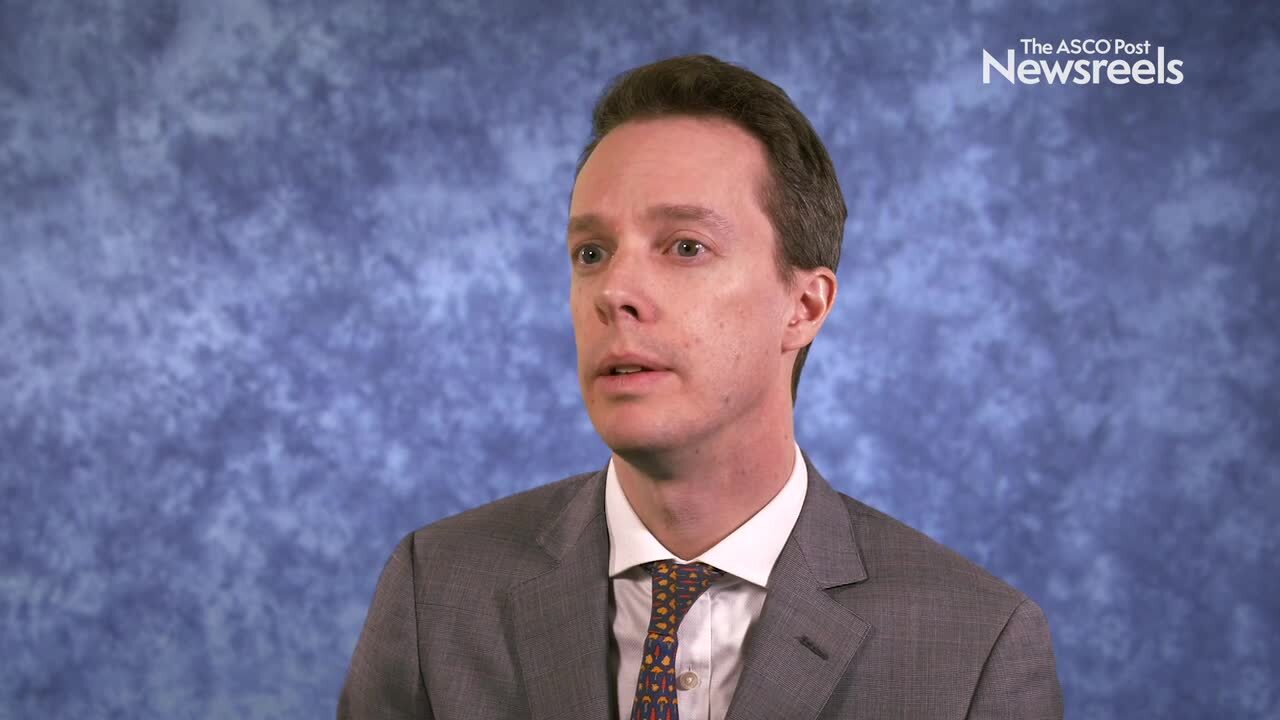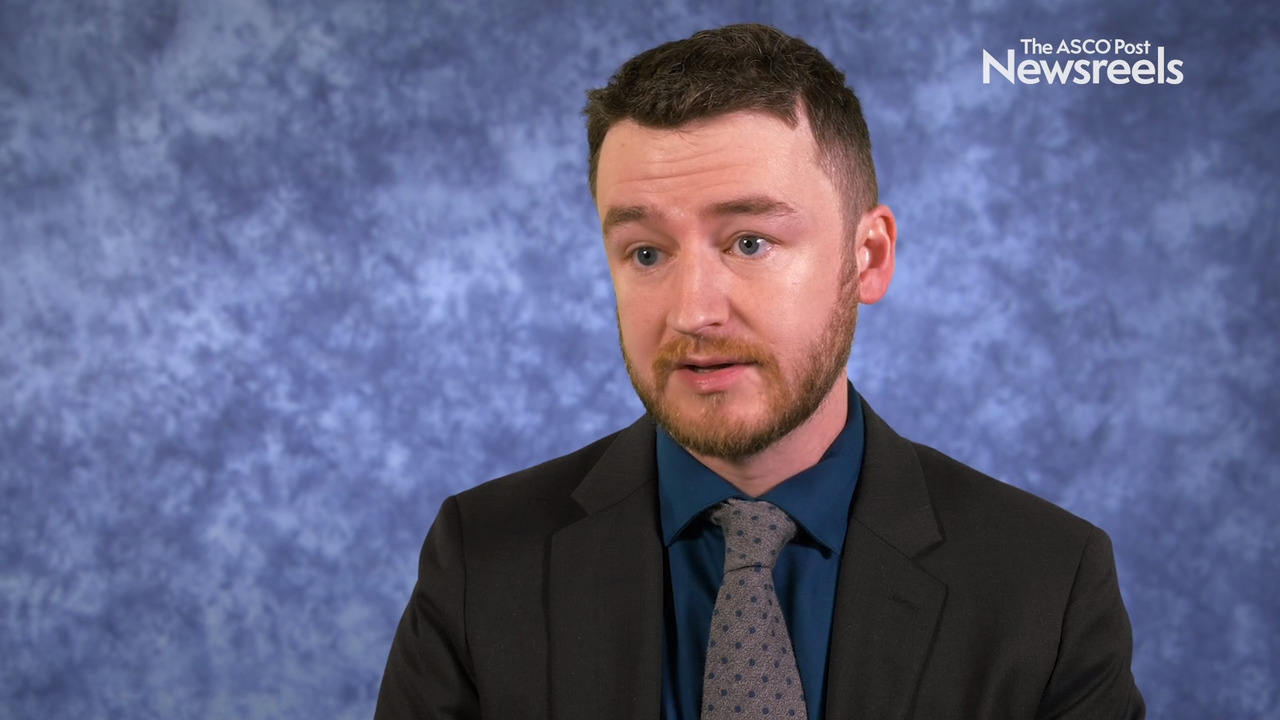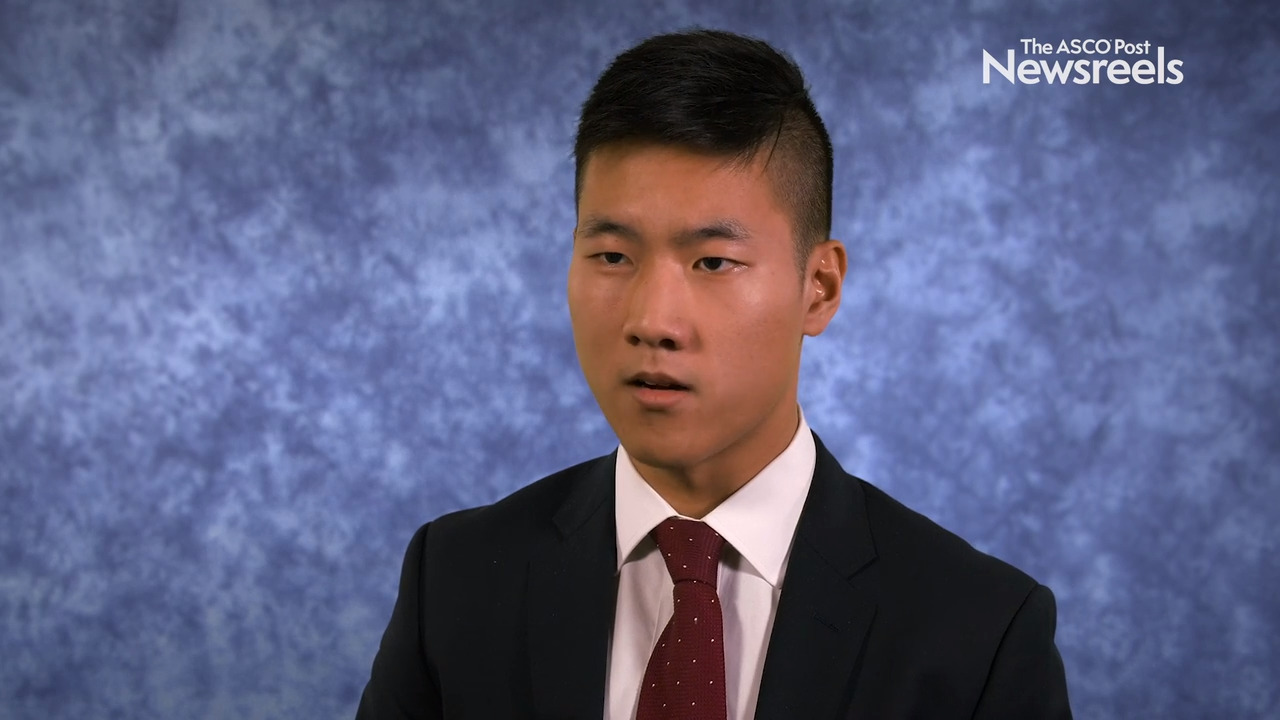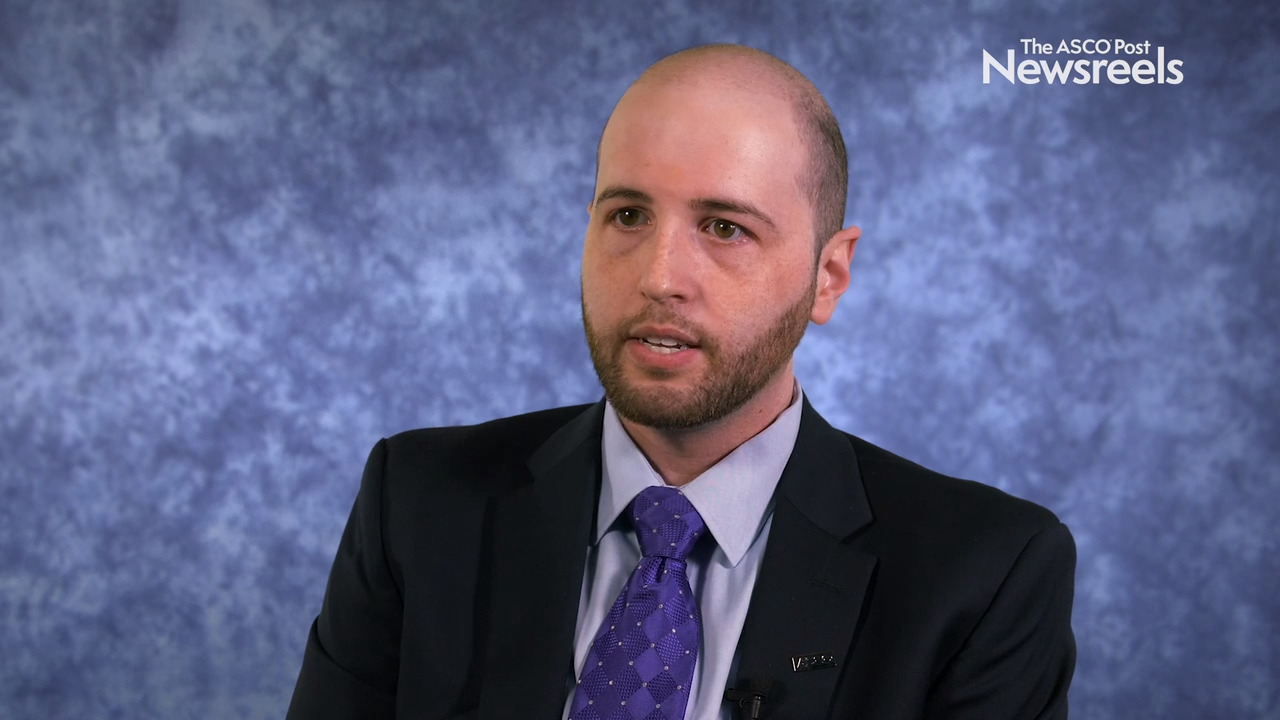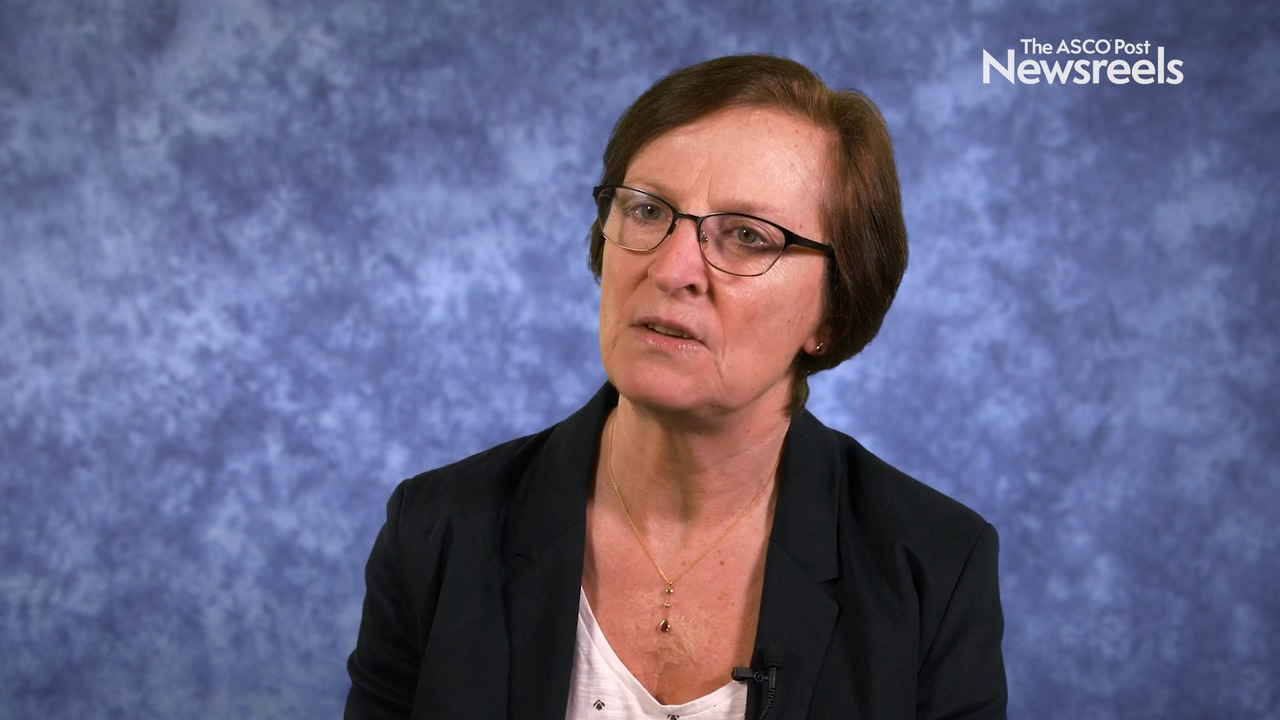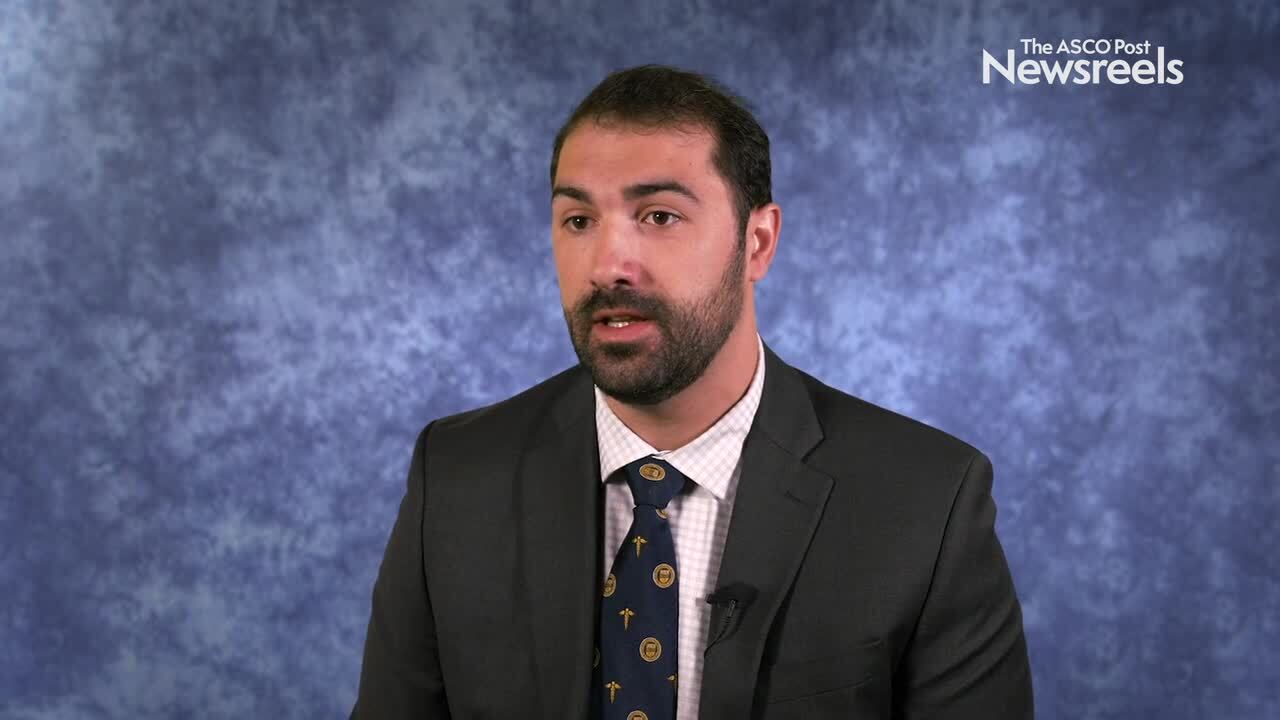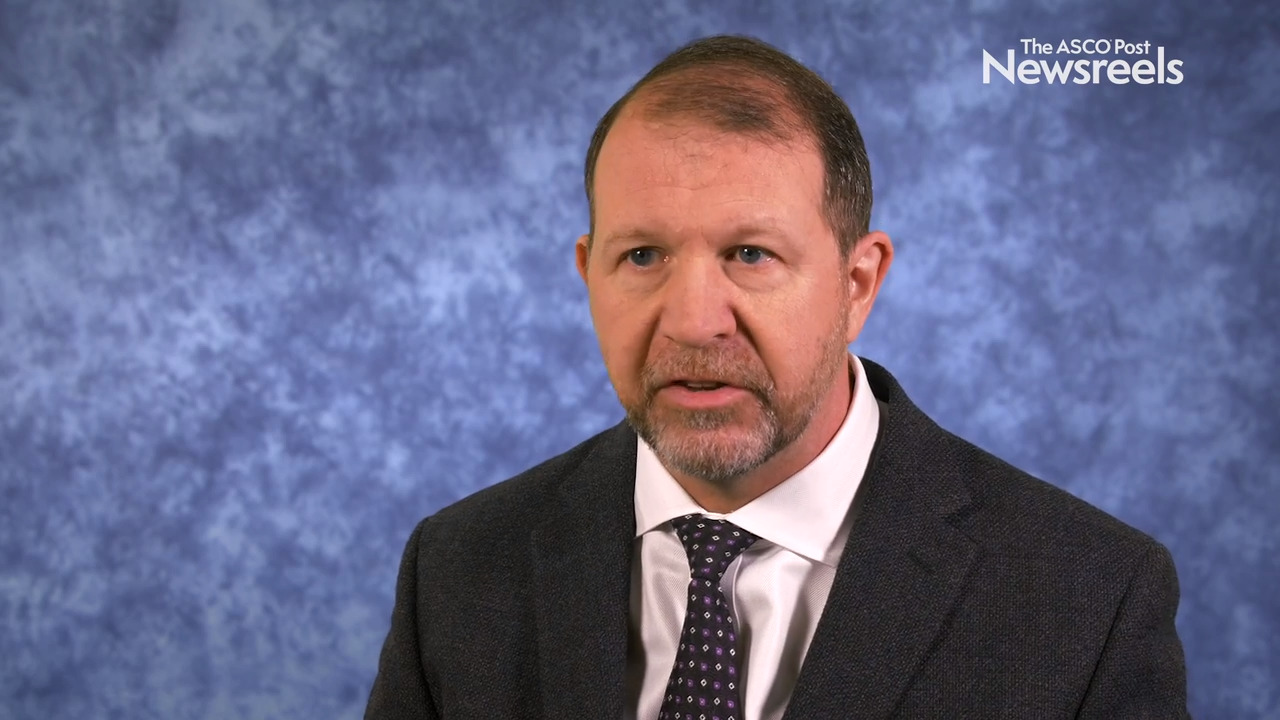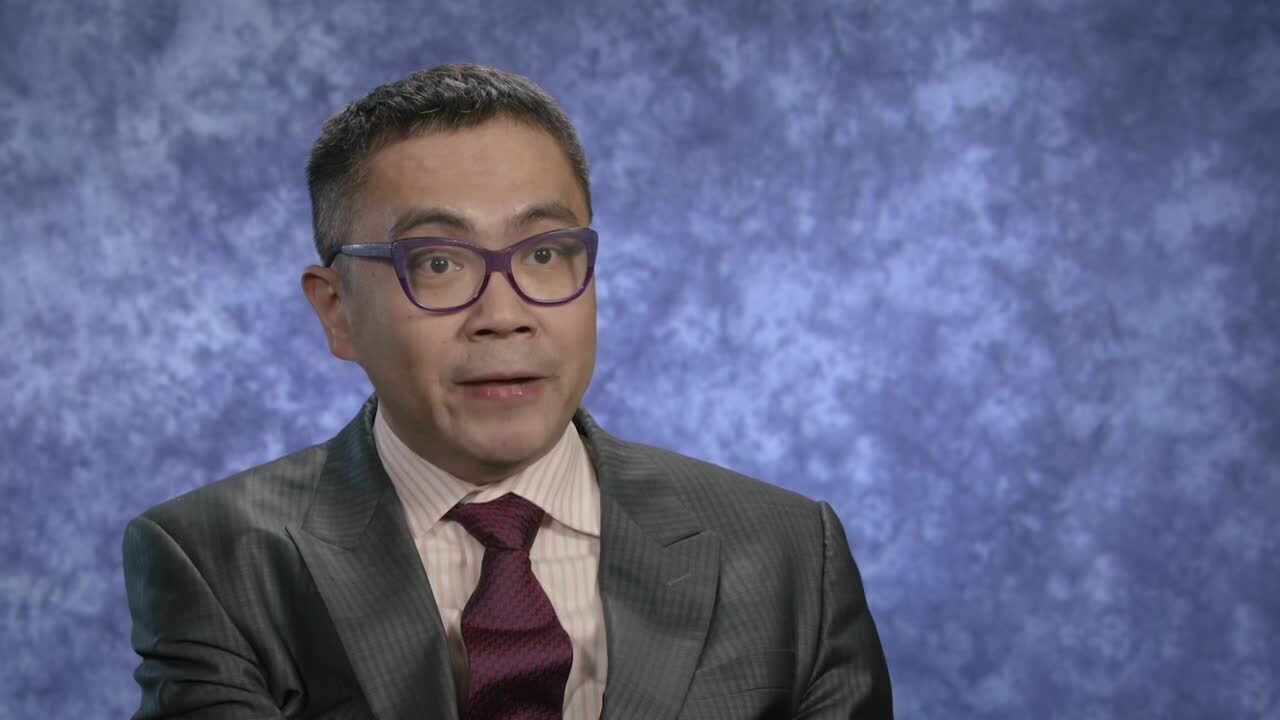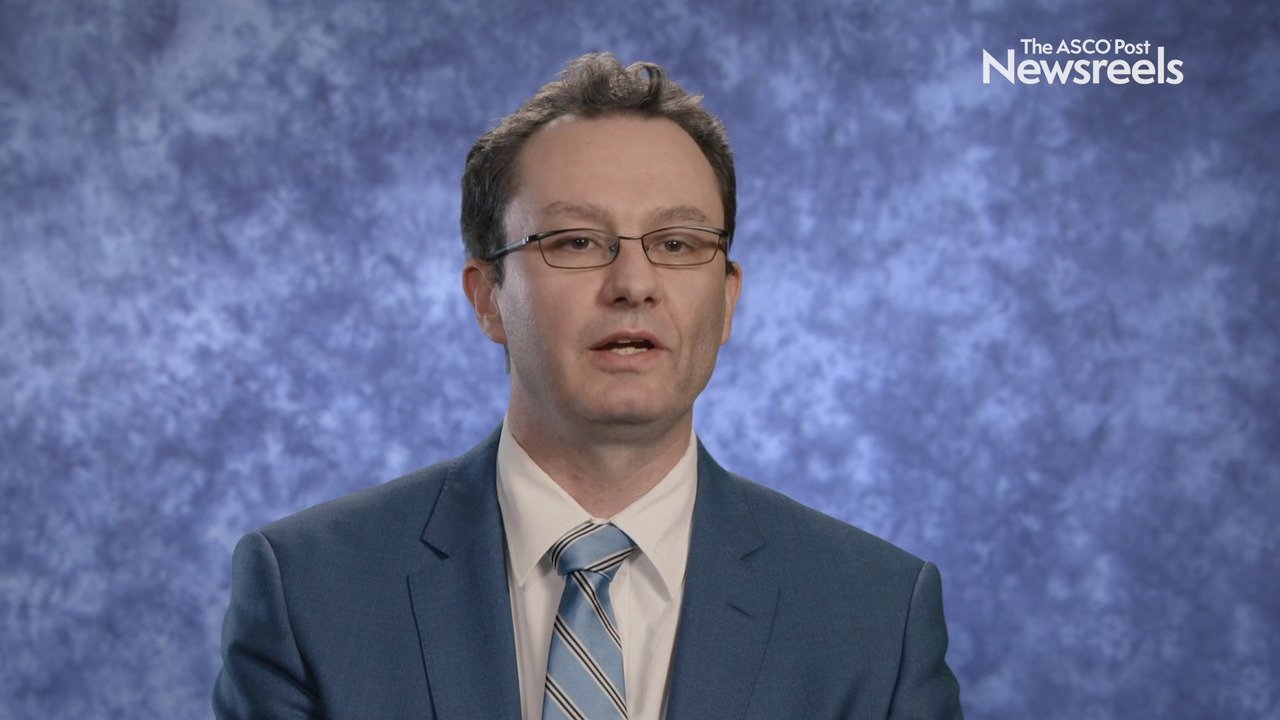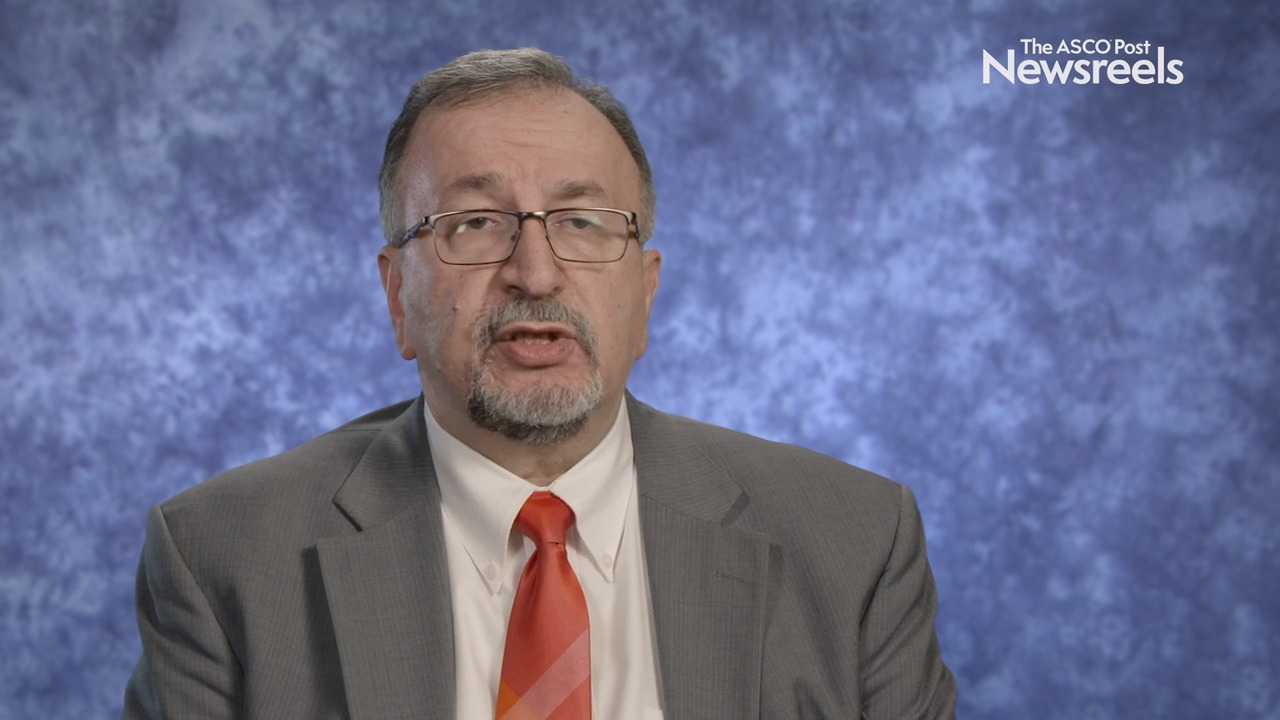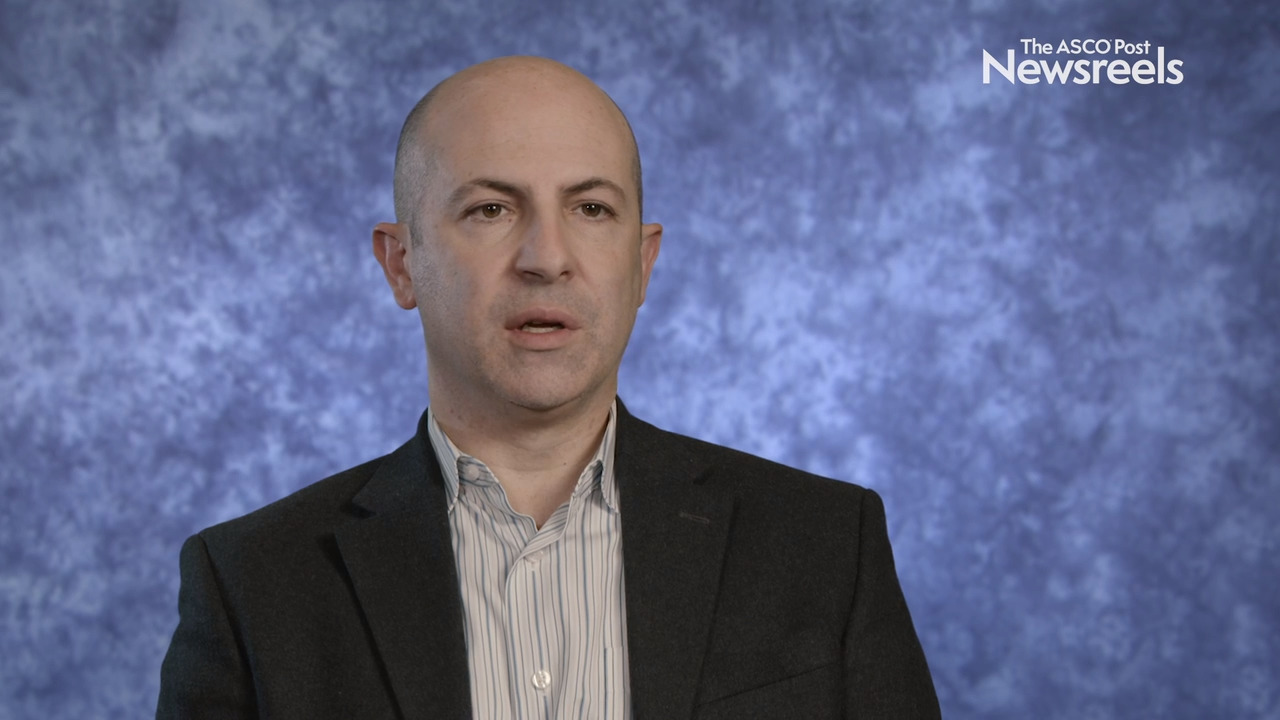Expert Point of View: Basem M. William, MD, MRCP (UK), FACP, and Caron Jacobson, MD
Basem M. William, MD, MRCP (UK), FACP, Director of the T-Cell Lymphoma Program and Member of the Blood and Marrow Transplant Program at The Ohio State University Comprehensive Cancer Center, Columbus, said many of the new-generation bispecific antibodies are “highly promising.” He said they “are...
Will Bispecific Antibodies Compete With CAR T-Cell Therapy in Lymphoma?
Are second-generation bispecific antibodies the next big thing in lymphoma? Studies of these drugs were among the highlights of the 2019 American Society of Hematology (ASH) Annual Meeting & Exposition. Years ago, the bispecific T-cell engager blinatumomab validated the concept of bispecific...
Conference Highlights From the 2019 American Society of Hematology Annual Meeting & Exposition
More than 25,000 specialists in hematology from over 115 countries attended the 61st American Society of Hematology (ASH) Annual Meeting & Exposition held last December in Orlando. The conference featured a stunning array of 4,900 abstracts with impressive new data in the treatment of multiple...
Ziad Bakouny, MD, on Sarcomatoid and Rhabdoid RCC: Potential Determinants of Poor Prognosis and Treatment Response
Ziad Bakouny, MD, of Dana-Farber Cancer Institute, discusses two types of renal cell cancer that are associated with poor prognosis. Because recent early data suggest these tumors respond well to immune checkpoint inhibitors, the authors characterized the tumors in an integrative molecular and clinical study (Abstract 715).
Toni K. Choueiri, MD, on COSMIC-313: Cabozantinib in Combination With Nivolumab/Ipilimumab in RCC
Toni K. Choueiri, MD, of Dana-Farber Cancer Institute, describes a currently recruiting phase III study (COSMIC-313) of cabozantinib in combination with nivolumab and ipilimumab vs nivolumab/ipilimumab for patients with previously untreated advanced renal cell carcinoma of intermediate or poor risk (Abstract TPS767).
Nizar M. Tannir, MD, on Nivolumab/Ipilimumab vs Sunitinib in Advanced Kidney Cancer
Nizar M. Tannir, MD, of The University of Texas MD Anderson Cancer Center, discusses overall survival and an independent review of response in CheckMate 214 with 42-month follow-up, using first-line nivolumab plus ipilimumab vs sunitinib in patients with advanced renal cell carcinoma (Abstract 609).
Thomas Powles, MD, PhD, on Adding Radiation to Immunotherapy for RCC: Improving Systemic Control Through Local Therapy
Thomas Powles, MD, PhD, of Queen Mary University of London, summarizes two papers on metastatic renal cell carcinoma for which he was the discussant: nivolumab in combination with stereotactic body radiotherapy in pretreated patients, and combining dual immune checkpoint inhibition with stereotactic radiation (Abstracts 613 & 614).
Nicholas D. James, PhD, MBBS, on Bladder Cancer: Cetuximab With Chemoradiotherapy
Nicholas D. James, PhD, MBBS, of The Institute of Cancer Research in London, discusses results from a phase I/II feasibility study that showed the combination of cetuximab, chemoradiation, fluorouracil, and mitomycin yields high bladder cancer control rates with acceptable toxicity and quality of life, meriting further evaluation in a randomized trial (Abstract 491).
Neeraj Agarwal, MD, on Castration-Resistant Prostate Cancer: Results From the COSMIC-021 Study of Cabozantinib and Atezolizumab
Neeraj Agarwal, MD, of the University of Utah Huntsman Cancer Institute, discusses trial findings that showed the combination of cabozantinib and atezolizumab had a tolerable safety profile and showed activity in men with metastatic disease. Further evaluation of cabozantinib and atezolizumab is planned in a phase III trial (Abstract 82).
Ziad Bakouny, MD, on Metastatic Kidney Cancer: Defining the Role of Cytoreductive Nephrectomy
Ziad Bakouny, MD, of Dana-Farber Cancer Institute, discusses the controversial and ill-defined role of cytoreductive nephrectomy in treating patients with metastatic renal cell carcinoma who have received targeted therapies or immune checkpoint inhibitors (Abstract 608).
Julie N. Graff, MD, on Castration-Resistant Prostate Cancer: Results From KEYNOTE-199 on Pembrolizumab Plus Enzalutamide
Julie N. Graff, MD, of Oregon Health & Science University and Knight Cancer Institute, discusses study findings that show pembrolizumab plus enzalutamide after progression on enzalutamide produced clinical activity and can lead to durable responses, with a manageable safety profile. The phase III KEYNOTE-641 trial will test patients who are enzalutamide-naive (Abstract 15).
No Improved Pathologic Complete Response With Atezolizumab in Early Triple-Negative Breast Cancer
The addition of the checkpoint inhibitor atezolizumab to chemotherapy with carboplatin and nab-paclitaxel failed to significantly improve pathologic complete response rates compared with chemotherapy alone in patients with early high-risk, locally advanced triple-negative breast cancer. According...
Jonathan E. Rosenberg, MD, on Locally Advanced or Metastatic Urothelial Carcinoma: Enfortumab Vedotin Plus Pembrolizumab
Jonathan E. Rosenberg, MD, of Memorial Sloan Kettering Cancer Center, discusses study results which showed that, in first-line cisplatin-ineligible patients with metastatic urothelial carcinoma, enfortumab vedotin/pembrolizumab demonstrated activity and durability, with a manageable safety profile (Abstract 441).
ASCO/CCO Update Guideline for Selecting Systemic Treatment in Stage IV NSCLC Without Driver Mutations
ASCO and Cancer Care Ontario (CCO) have published an update to a joint guideline on systemic therapy for stage IV non–small cell lung cancer (NSCLC) without driver mutations.1 “The treatment of stage IV NSCLC has become increasingly more complicated, and, with the advent of immunotherapy and the...
Perioperative Chemotherapy With or Without Cetuximab in Patients With Resectable Colorectal Cancer Liver Metastases
As reported in The Lancet Oncology by Bridgewater et al, the phase III New EPOC trial has shown that the addition of perioperative cetuximab to chemotherapy was associated with significantly poorer overall survival in patients with KRAS wild-type resectable colorectal cancer liver metastases. An...
Addition of Pembrolizumab to Neoadjuvant Chemotherapy in Early-Stage HER2-Negative Breast Cancer
As reported in JAMA Oncology by Rita Nanda, MD, and colleagues, findings from the ongoing phase II I-SPY 2 trial indicated that the addition of pembrolizumab to standard neoadjuvant chemotherapy improved pathologic complete response rates in patients with high-risk stage II/III HER2-negative breast ...
FDA Pipeline: Priority Reviews in Lymphoma, Lung Cancer, GIST, and Breast Cancer
This week, the U.S. Food and Drug Administration (FDA) granted Priority Review to agents in lymphoma, lung cancer, gastrointestinal stromal tumors, and breast cancer, and granted Fast Track designation to a first-in-class radioenhancer hafnium oxide nanoparticle in head and neck cancer. Priority...
2020 GU Cancers Symposium: Enfortumab Vedotin Plus Pembrolizumab in Bladder Cancer
In patients with metastatic urothelial carcinoma, platinum chemotherapy is the standard of care in the first-line setting; however, for patients who are ineligible for platinum treatment, the alternative standard—gemcitabine plus carboplatin—can be poorly tolerated and have limited durability and...
Anti-CD19 CAR-NK Therapy in Relapsed or Refractory CD19-Positive Lymphoid Tumors
In a phase I/II trial reported in The New England Journal of Medicine, Liu et al found that anti-CD19 chimeric antigen receptor (CAR) natural killer (NK) cells produced rapid responses in patients with CD19-positive lymphoid tumors, without the toxicities associated with CAR T-cell therapy in this...
Immune-Related Adverse Events in Patients With Cancer Receiving Influenza Vaccination During Treatment With Pembrolizumab
In a study reported in JCO Oncology Practice, Failing et al found that influenza vaccination did not increase the incidence of immune-related adverse events among patients receiving pembrolizumab for various cancers. On multivariate analysis, influenza vaccination was associated with a...
Expert Point of View: Edmund K. Waller, MD, PhD
Edmund K. Waller, MD, PhD, Professor, Departments of Medicine, Pathology, and Hematology and Medical Oncology at Emory University School of Medicine and Medical Director, Center for Stem Cell Processing and Apheresis at Emory, said he was not surprised to learn that bridging therapy was associated...
Study Finds ‘Bridge’ to CAR T-Cell Therapy May Be Detrimental to Survival
The use of bridging therapy before treatment with axicabtagene ciloleucel was associated with worse overall survival in univariate, multivariate, and propensity score–matched analyses performed on data from the U.S. Lymphoma CAR T Consortium, investigators reported at the 2019 American Society of...
John N. Lukens, MD, on Advanced Melanoma: Antibiotics, Survival, and Colitis in Patients Receiving Immunotherapy
John N. Lukens, MD, of the Hospital of the University of Pennsylvania, discusses his finding that taking antibiotics within 3 months of starting treatment with immune checkpoint inhibitors may lead to inferior overall survival in patients with stage III or IV melanoma. The antibiotics were also linked to a higher incidence of severe immune-mediated colitis (Abstract 56).
Christopher B. Cole, MD, PhD, on Ovarian Cancer: First-in-Human Study of Interferon-Activated Autologous Monocytes
Christopher B. Cole, MD, PhD, of the National Cancer Institute, discusses findings from a phase I study of intraperitoneal monocytes activated by interferons alpha and gamma in patients with ovarian cancer. Two of 11 patients had a partial response and 5 of 11 had stable disease; ongoing efforts are exploring more immune system targets in order to increase efficacy (Abstract 1).
Kevin Tyan on Colitis Induced by Immune Checkpoint Inhibitors: Potential Preventive Strategy
Kevin Tyan, of Kinnos, and currently a medical school student at Harvard University, discusses his study findings, which showed that patients with melanoma who are treated with immunotherapy had a significantly lower risk of developing colitis if they also took vitamin D ( Abstract 89).
Jacob J. Adashek, DO, on Immunoregulatory Molecules, Cancer Genes, and Therapeutic Insights
Jacob J. Adashek, DO, of the University of South Florida and Moffitt Cancer Center, discusses data on combining immunoregulatory inhibition and targeted gene therapy, which may offer patients better outcomes (Abstract 10).
Philippa G. Corrie, PhD, on Patient Outcomes in Melanoma After Immune Checkpoint Inhibition
Philippa G. Corrie, PhD, of Cambridge University Hospitals NHS Foundation Trust, discusses a review of 2,322 patients with metastatic melanoma receiving first-line immune checkpoint inhibitors as standard of care in England between 2014 and 2018 (Abstract 55).
Luis I. Ruffolo, MD, on Pancreatic Cancer: Augmenting Immunotherapy With Antibody Blockade of Semaphorin 4D
Luis I. Ruffolo, MD, of the University of Rochester, discusses preclinical studies showing that semaphorin 4D blockade may sensitize pancreatic tumors to chemoimmunotherapy combinations (Abstract 26).
Dario Vignali, PhD, on Immune Resistance Mechanisms in Cancer
Dario Vignali, PhD, of the University of Pittsburgh and UPMC Hillman Cancer Center, summarizes his Keynote Address, which covered what drives systemic immune dysfunction in patients with cancer, what promotes inhibitory receptor expression, and what limits the persistence of antigen-specific T cells.
ASCO-SITC 2020: Ilixadencel/Sunitinib vs Sunitinib Alone in Synchronous Metastatic Kidney Cancer
In a study presented by Lindskog et al at the 2020 ASCO-SITC Clinical Immuno-Oncology Symposium (Abstract 11), researchers found ilixadencel, a cell-based allogeneic off-the-shelf product, in combination with sunitinib produced a higher objective response rate than sunitinib alone in patients with...
ASCO-SITC 2020: Low Incidence of Nivolumab-Induced Radiation Recall Pneumonitis Among Patients With NSCLC
A multicenter retrospective study investigating the incidence of pneumonitis and the incidence, risk factors, and clinical characteristics of radiation recall pneumonitis in patients with non–small cell lung cancer (NSCLC) who had received nivolumab found the incidence of radiation recall...
Expert Point of View: Michael Jain, MD, PhD
Michael Jain, MD, PhD, Assistant Member in the Department of Blood and Marrow Transplant and Cellular Immunotherapy at Moffitt Cancer Center, Tampa, Florida, commented on Dr. Kilgore’s findings. Dr. Jain was coauthor of a study by the U.S. Lymphoma CAR T Consortium that presented real-world data...
Real-World Data for CAR T-Cell Therapy Show Benefit in Older Patients With Lymphoma, Lower Subsequent Health-Care Costs
Once considered highly experimental, chimeric antigen receptor (CAR) T-cell therapy is now an established third-line treatment option for B-cell lymphomas and leukemias. CAR T-cell therapy has saved the lives of people who would otherwise have run out of treatment options. But the question is...
Neoadjuvant and Adjuvant Pembrolizumab Improves Pathologic Complete Response Rate in Triple-Negative Breast Cancer
The addition of pembrolizumab to neoadjuvant and adjuvant chemotherapy achieves higher rates of pathologic complete response compared with placebo in patients with triple-negative breast cancer, according to results of the phase III KEYNOTE-522 trial presented at the 2019 San Antonio Breast Cancer...
Expert Point of View: Jeremy S. Abramson, MD
Jeremy S. Abramson, MD, Director of the Jon and JoAnn Hagler Center for Lymphoma at Massachusetts General Hospital and Associate Professor of Medicine at Harvard Medical School, Boston, commented on the study by Topp et al for The ASCO Post. “Earlier use of steroids with axicabtagene ciloleucel...
ASCO-SITC 2020: Preliminary Results Show Antitumor Activity With Pepinemab/Avelumab in Patients With Advanced NSCLC
Interim results from the CLASSICAL-Lung phase Ib/II clinical trial of pepinemab, an IgG4 humanized monoclonal antibody targeting semaphorin 4D, in combination with the anti–programmed cell death ligand 1 antibody avelumab for patients with advanced NSCLC showed that the treatment is well tolerated...
ASCO-SITC 2020: Vitamin D May Reduce Risk for Immune Checkpoint Inhibitor–Associated Colitis
In a study to be presented by Tyan et al at the upcoming 2020 ASCO-SITC Clinical Immuno-Oncology Symposium (Abstract 89), researchers found that vitamin D intake may be associated with reduced risk of colitis among patients being treated with immune checkpoint inhibitors. Retrospective Analysis In ...
Early Steroid Use May Reduce Toxicity With CAR T-Cell Therapy
In patients with large B-cell lymphoma undergoing chimeric antigen receptor (CAR) T-cell therapy with axicabtagene ciloleucel, earlier-than-usual intervention with corticosteroids and tocilizumab may reduce the incidence of severe cytokine-release syndrome, according to the findings of a...
Peripheral Blood Lymphocytes and T Cells Targeting TP53 Mutations in Patients With Metastatic Solid Tumors
Although TP53 is the most frequently mutated gene across all cancers and encodes the tumor suppressor p53 protein, TP53-targeted therapies have not demonstrated efficacy beyond in vitro models and immunotherapies targeting mutant TP53 are not currently available. A study by Malekzadeh et al...
Immunotherapy Combination in Previously Treated Advanced Sarcoma
In a single-institution phase II study reported in JAMA Oncology, Kelly et al found that the combination of talimogene laherparepvec (T-VEC) and pembrolizumab produced durable responses in patients with previously treated advanced sarcoma. As noted by the investigators, T-VEC has been found to...
Pooled Analysis of Body Mass Index and Overall Survival With Immune Checkpoint Inhibitor Therapy in NSCLC
In a study reported in JAMA Oncology, Kichenadasse et al found that high body mass index was associated with improved overall survival in patients with advanced non–small cell lung cancer (NSCLC) treated with atezolizumab. As noted by the investigators, there are data showing that high BMI is...
Activity of Anti-BCMA BiTE Molecule AMG 420 in Relapsed or Refractory Multiple Myeloma
In a phase I study reported in the Journal of Clinical Oncology, Max S. Topp, MD, and colleagues found the maximum tolerated dose of the investigational anti–B cell maturation antigen (BCMA) bispecific T-cell engager (BiTE) molecule AMG 420 elicited a high response rate in patients with relapsed or ...
Thomas Yau, MBBS, on Advanced Hepatocellular Carcinoma: CheckMate 040 Trial of Nivolumab, Ipilimumab, and Cabozantinib
Thomas Yau, MBBS, of the University of Hong Kong, discusses this triplet combination, which yielded better responses than doublet combination therapy in patients with advanced liver cancer, but with more severe adverse events and more treatment discontinuations (Abstract 478).
Expert Point of View: Basem M. William, MD, MRCP(UK), FACP
Basem M. William, MD, MRCP(UK), FACP, Director of the T-Cell Lymphoma Program and Member of the Blood and Marrow Transplant Program at The Ohio State University Comprehensive Cancer Center–Arthur G. James Cancer Hospital and Richard J. Solove Research Institute, Columbus, Ohio, commented on the...
CAR T-Cell Therapy Comes to Mantle Cell Lymphoma
Advanced mantle cell lymphoma appears to be a good target for chimeric antigen receptor (CAR) T-cell therapy. Treatment with KTE-X19, an anti-CD19 CAR T-cell product, led to unprecedented outcomes in patients with relapsed or refractory disease in the phase II ZUMA-2 study presented at the 2019 ASH ...
Dual VEGF and PD-1 Inhibition in Advanced Solid Tumors
In a phase Ib/II trial reported in the Journal of Clinical Oncology, Taylor et al found the combination of the VEGF inhibitor lenvatinib and the programmed cell death protein 1 (PD-1) inhibitor pembrolizumab showed activity across a range of advanced solid tumors. As stated by the authors, there is ...
Thibaud Kössler, MD, PhD, on Localized Rectal Cancer: Neoadjuvant Pembrolizumab and Radiotherapy
Thibaud Kössler, MD, PhD, of Geneva University Hospital, discusses the first trial to study the efficacy and safety of anti–PD-1 immunotherapy plus short-course radiotherapy in localized microsatellite-stable rectal cancer. The study explores whether a gene signature can predict sensitivity to immunotherapy (Abstract TPS272).
Eyal Meiri, MD, on Pembrolizumab in Colorectal Cancer: Results From the TAPUR Study
Eyal Meiri, MD, of the Cancer Treatment Centers of America at Southeastern Regional Medical Center, discusses his findings on heavily pretreated patients with colorectal cancer with high tumor mutational burden. Monotherapy with pembrolizumab showed antitumor activity, which merits further study to confirm efficacy (Abstract 133).
Peter R. Galle, MD, on Atezolizumab/Bevacizumab vs Sorafenib for Hepatocellular Carcinoma: Patient-Reported Outcomes
Peter R. Galle, MD, of the University Medical Center, Mainz, discusses patient-reported outcomes from this phase III study, which showed the combination of atezolizumab plus bevacizumab vs sorafenib is well tolerated and may represent a new standard of care in the first-line setting for unresectable liver cancer (Abstract 476).
Zev A. Wainberg, MD, on PD-L1–Positive Advanced Gastric Cancer: MSI and Combined Positive Score and Pembrolizumab vs Chemotherapy
Zev A. Wainberg, MD, of the UCLA Medical Center, discusses the first subset analysis of how a combined positive score in gastric and gastroesophageal junction cancers related to the efficacy of pembrolizumab in PD-L1–positive disease (Abstract 427).
